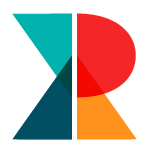Humans of New York photojournalist Brandon Stanton was once asked on a podcast what he says to get complete strangers to open up to him about their lives. What’s his magical list of questions? How does he get people to share their deepest battles and highest delights?
As with most things, the secrets are unlocked in the silence, in the things we do not say, to leave room for what’s honest and real. Stanton shared that his only go-to questions are the really hard ones we don’t ask those closest to us.
How have things turned out differently than you thought they might?
In what ways have you been disappointed in life?
What is your greatest struggle right now?
And then he shuts his mouth and LISTENS.
“Especially in today’s age, when everything’s about telling your own story, everything’s about putting out your own stuff and getting noticed and getting attention—I think the one thing that is in short supply is listening itself.”
A big part of communications work is to tell the story of an organization or a company, get noticed and get attention. People say, “We want to get the word out about our new program/product/service! Interview a few of the customers/participants/staff/community about it and make a video/website/article/grant case statement.”
Inevitably, when I reach out to the individuals to be interviewed, they ask what the questions will be, so that they can prepare in advance. After doing this for years, I'm of two minds about it.
On the one hand, it’s totally natural to want to feel prepared and in control of how you represent yourself. Particularly in the context of a news broadcast, a conference panel or, say, a presidential debate.
On the other hand, I know that if I ask stock questions in an interview setting where I want real human moments, I’ll get stock answers. Armed with the questions, people attempt to get it perfect and be performative instead of authentic and in the moment. Young people, especially, will try to please the interviewer and give the “right” answer, which may or may not be true to their experience.
The ideal scenario is to start with a couple softball questions (what did you eat for breakfast, tell me about your day so far, how did you get your name), then ask the interviewee to elaborate on something they were excited about or where you sense there's more of a story. It’s helpful to mention before interviews that anything can be edited out that doesn’t sit right with them.
If you NEED to send a list of questions ahead of time, I typically lean on the following:
What's something that people may not know about (program x, organization Y, issue Z)?
What does it mean to you to be (part of program X or organization Y)?
What do you worry about on your journey [to achieve mission XYZ]?
Tell me about someone you admire and how they've helped you.
Is there something that you'd like to change in the world?
But mostly, por favor cierra tu boca y escucha (LISTEN!). You’ll be amazed at what happens if you pause a little longer than social norms dictate.

